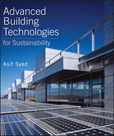Smoking issues were addressed in two sessions held at the ASHRAE's 2002 Winter Meeting, Jan. 12-16, in Atlantic City, NJ. Speakers representing the hospitality industry, tobacco control and health groups, ASHRAE, and others debated over how ventilation in smoking areas should be addressed in ASHRAE publications, standards and other design documents in a seminar, Is There a Need for a Separate IAQ Standard for the Hospitality Industry, and a forum, Should ASHRAE Develop a Separate IAQ Standard for the Hospitality Industry. The issue now will be discussed by ASHRAE's Board Policy Committee on Standards.
"Building professionals need information on ventilating smoking spaces, and ASHRAE needs to provide it," James Hill, chair of the committee, said. The committee will study what guidance ASHRAE should provide for ventilating smoking spaces, using information gathered from representatives on all sides of the issue.
Currently, guidance on smoking and non-smoking spaces is addressed in ASHRAE Standard 62-2001, Ventilation for Acceptable Indoor Air Quality. The Standard 62 committee is working to develop ventilation rates for smoking spaces in the form of an appendix to the standard, according to chair Andrew Persily.
Persily has been asked to provide the Board Policy Committee with options for the group to consider. "I expect a wide range of options," Hill said. "Smoking advocates likely will push to keep smoking and indoor air quality together. Smoking opponents likely will push to take no action for fear it will imply some sort of endorsement of smoking by ASHRAE."
The committee hopes to discuss the issue at a meeting later this spring. ASHRAE, founded in 1894, is an international organization of 55,000 persons. Its sole objective is to advance through research, standards writing, publishing and continuing education the arts and sciences of heating, ventilation, air conditioning and refrigeration to serve the evolving needs of the public.

